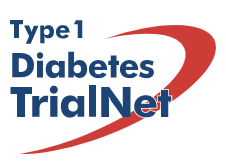Pathway to Prevention of Type 1 Diabetes
By Arvind Sommi
 For relatives of people with type 1 diabetes (T1D), about 5% have certain antibodies associated with causing T1D. By joining this clinical trial, you or your relatives could contribute to the future of prevention and early treatment of T1D.
For relatives of people with type 1 diabetes (T1D), about 5% have certain antibodies associated with causing T1D. By joining this clinical trial, you or your relatives could contribute to the future of prevention and early treatment of T1D.
Clinical Trials Identifier: NCT00097292
Trial Name: TrialNet Pathway to Prevention of T1D
Diabetes Type: Type 1
Trial Sponsor: National Institute of Diabetes and Digestive and Kidney Diseases (NIDDK)
Trial Locations: This trial is taking place at 23 study locations around the world (including in Australia, Canada, Finland, Italy, and the UK) with 18 across the United States. You can find a full list of study locations here.
What is trial testing?
The TrialNet study is recruiting 75,000 participants all over the world who have a close relative with type 1 diabetes (T1D). The Pathway to Prevention study is conducted in two parts: screening and monitoring.
Researchers start with screening by conducting a simple blood test to screen for the presence of diabetes-related autoantibodies. If either of the main two autoantibodies are identified, then additional screening for three other T1D-related autoantibodies will be conducted. Antibodies are part of your immune system and their purpose is to identify and neutralize bacteria and viruses. An autoantibody is an antibody that mistakenly targets your body’s own tissues and organs. In people with, or at risk for, type 1 diabetes, the immune system destroys the pancreatic beta cells that make insulin. Participants can get their screening tests done at a TrialNet Clinical Center, an affiliate center, or by requesting a screening kit to have their blood drawn by a local physician or laboratory.
Additional screening and monitoring:
-
If someone has only one autoantibody, they will be invited to be re-tested annually to check for the development of multiple antibodies.
-
Those already with multiple autoantibodies are invited to take an oral glucose tolerance test (OGTT), re-testing for multiple autoantibodies (if needed), and an A1C test.
-
Multiple autoantibody participants with normal glucose tolerance and A1C less than 6% will be asked to follow-up annually.
-
Multiple autoantibody participants with an abnormal glucose tolerance or an A1C greater than 6% will be asked to follow up semi-annually
-
Over time, participants are monitored and may be offered an opportunity to enter a prevention study or an early treatment study if they are diagnosed with T1D.
Why is this new and important?
TrialNet leads a variety of studies aimed to better understand the detection, prevention, and early treatment of T1D. This specific trial, named the Pathway to Prevention, has been recruiting since 2004 and focuses on how we might be able to identify individuals who may be at particularly high risk for developing T1D – especially when we know that relatives of people with diabetes are 15 times more likely to develop T1D than the general population.
The TrialNet screening could help identify people in early stages of T1D years before symptoms appear. Researchers are aiming to learn more about how the condition develops, leading to studies that explore ways to prevent it.
The Pathway to Prevention trial is particularly interested in the presence of diabetes related autoantibodies.
-
No autoantibodies present: you are at low risk for developing T1D and it is uncommon for you to develop them later in life.
-
One autoantibody present: you are at greater risk and may require follow up tests annually to see if you develop additional autoantibodies. For this study, you may also be referred to a T1D prevention program.
-
Two or more autoantibodies present: this indicates early stage T1D and your immune system has started to attack the pancreatic beta cells. For this study, you will undergo additional tests and follow-up.
For more information on this trial and to view a helpful graphic explaining the different scenarios that may occur, please visit the TrialNet Pathway to Prevention website.
Are you interested?
You may be eligible for this study if you:
-
Are between the ages of 2.5 and 45 years old and have an immediate family member with type 1 diabetes (such as a child, parent, or sibling)
-
Are between the ages of 2.5 and 20 years old and have an extended family member with type 1 diabetes (such as a cousin, niece, nephew, aunt, uncle, grandparent, or half-sibling)
-
Do not already have T1D
You can see a full list of eligibility and exclusion criteria here.
For More Information: To learn more, please contact the TrialNet Central Information Center at 1-800-425-8361 or check out the TrialNet study website.








